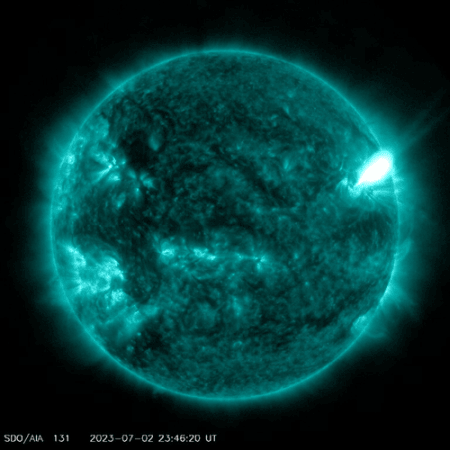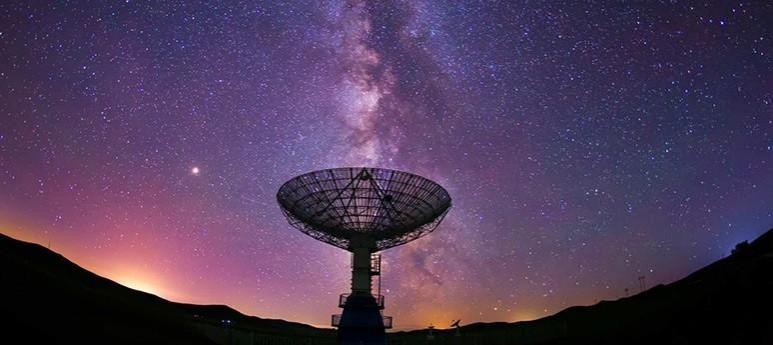The Sun has emitted a strong X-class solar flare triggering a strong radio blackout on various places on Earth, according to NASA's Solar Dynamics Observatory (SDO) which recorded the extreme ultraviolet flash.
The SDO classified the flare as an X1.0 flare. X-class denotes the most intense flares, while the number provides more information about its strength.
The strong solar flare peaked at 7.14 p.m. ET on July 2, the agency said.

This was reportedly the 18th X-class solar flare of Solar Cycle 25, or the active phase of Sun's 11-year solar weather cycle.
"X FLARE IN PROGRESS!!! Sunspot region AR3354 near the NW limb just produced an X1.07 Flare (between the 10th and 14th biggest flare so far, this solar cycle). That is the 18th X flare during SC25 (compared to just 14 from SC24)," Keith Strong, a solar physicist, wrote on Twitter.
Solar flares are powerful bursts of energy. Flares and solar eruptions can impact radio communications, electric power grids, navigation signals, and pose risks to spacecraft and astronauts.

"An R3 (Strong) radio blackout was observed at 23:14 UTC on July 2 (7.14 p.m. eastern). The flare came from a large and complex region denoted as sunspot group 3354," NOAA Space Weather wrote on Twitter.
The radiation from the flare ionised the top of Earth's atmosphere, resulting in a deep shortwave radio blackout over western parts of the US and the Pacific Ocean that lasted around 30 minutes, Spaceweather.com reported.
However, according to SpaceWeatherLive, the solar flare "while strong and a long duration event, was not eruptive and surprisingly did not launch a coronal mass ejection into space".
Scientists say more extreme space weather events like this powerful solar flare can be expected as the sun builds towards a peak in its 11-year solar activity cycle, expected to occur in 2025.
(With inputs from IANS)








